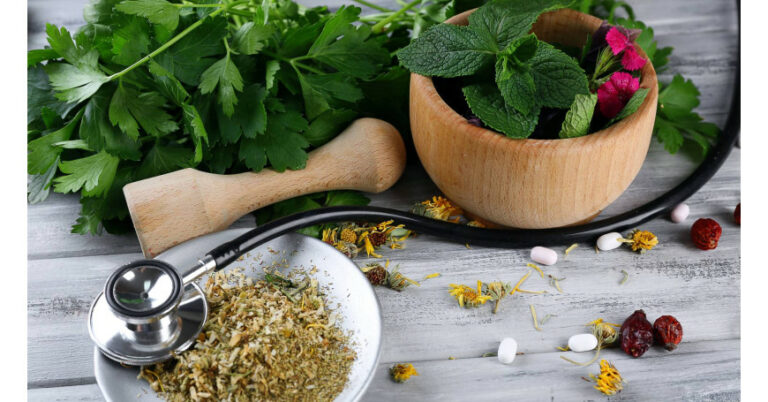The ancient Indian medicinal practice of Ayurveda has achieved remarkable results in the battle against noncommunicable diseases (NCDs), including diabetes. Diabetic complications include impaired digestion and impaired glucose homeostasis. Among the many health advantages of Ayurvedic herbs like fenugreek, bitter gourd, turmeric, and Indian gooseberry is their ability to regulate blood sugar levels and improve insulin sensitivity. You may make adaptable and individualised therapy regimens with these herbs in powder, pill, tea, or decoction form. In this article, we will examine some essential Ayurvedic herbs for diabetes, how they work, and some strategies that you may use immediately. The purpose of this article is to encourage readers to take an active role in their healthcare by discussing holistic and natural methods of treating diabetes. Uncover the secrets of Ayurvedic herbs like Aloe Vera, Tulsi, and Guggul for managing diabetes.
10 Ayurvedic Herbs for Diabetes Management
Bitter Melon
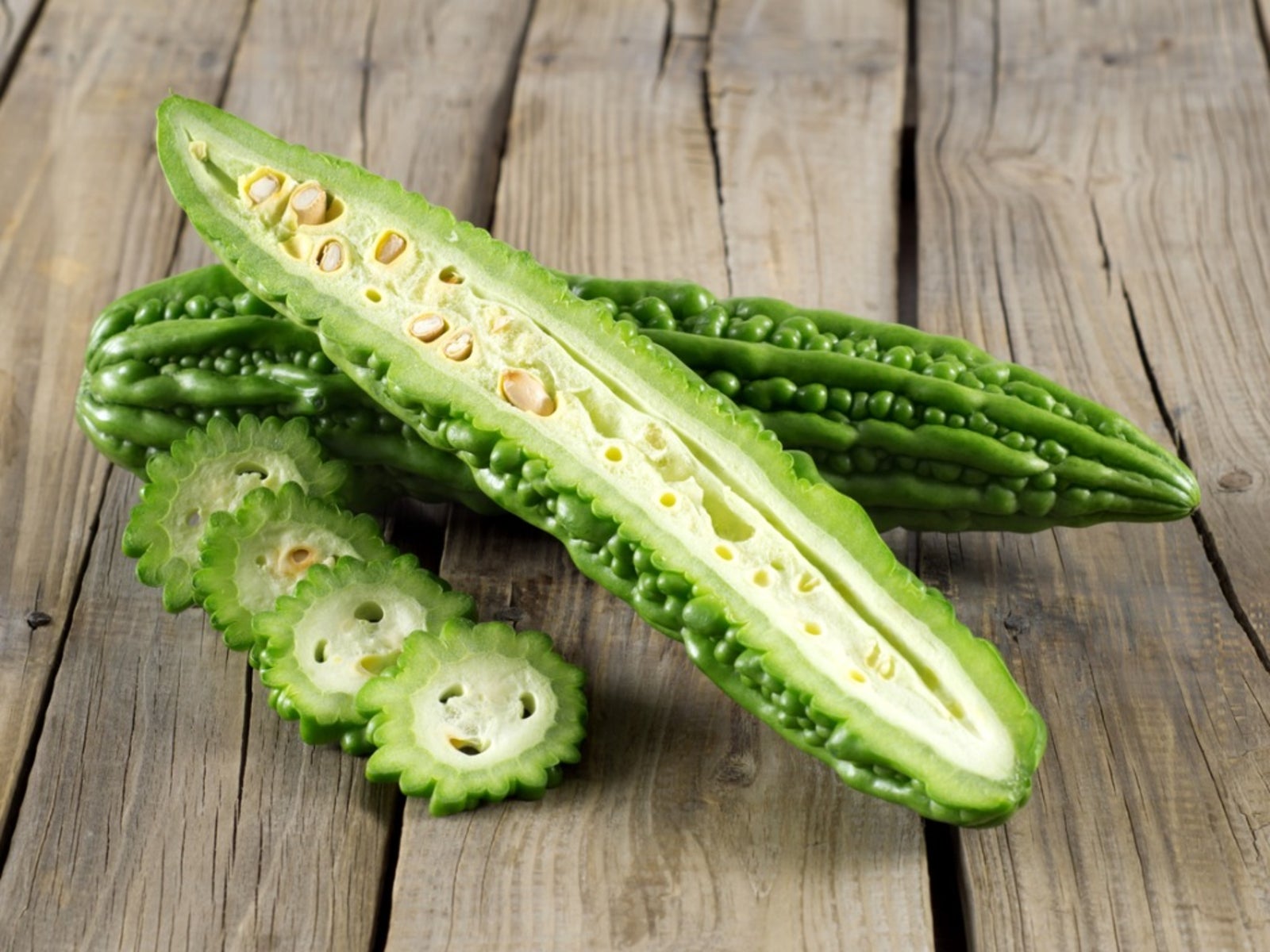
Bitter melon, or Momordica charantia, is a plant that has the potential to control blood sugar. It aids cellular glucose absorption and, like insulin, promotes fuel storage in adipose tissue, the liver, and muscles. When it comes to treating type 2 diabetes, a Cochrane review recommends further research on bitter melon’s effects. Researchers in the Journal of Ethnopharmacology found that bitter melon reduced fructosamine levels in type 2 diabetics. However, it was less efficient than an existing medication. Though it’s a great addition to a healthy diet, too much bitter melon could be detrimental and isn’t a diabetes treatment.
Fenugreek Seeds
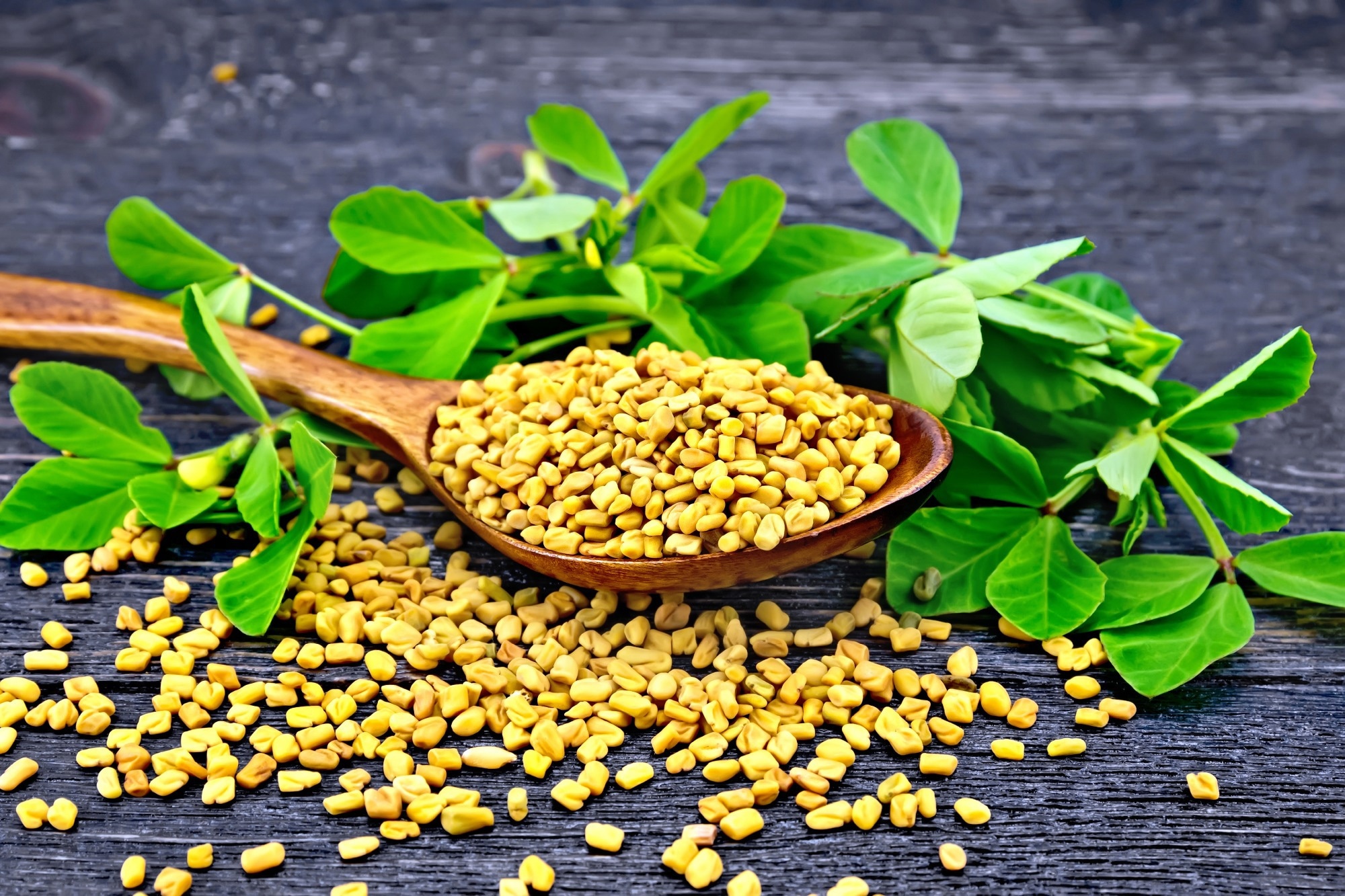
Fenugreek seeds may be helpful for people with diabetes due to the fibre and chemicals that slow digestion and sugar absorption. They may increase insulin secretion and improve sugar utilisation. Various fenugreek-based products include spices, dietary supplements, tea, and skin lotion. Check with your physician before consuming fenugreek if you are expecting a child, are a breastfeeding mother, or have food allergies. Stay away from fenugreek if you’re expecting a child, breastfeeding, or dealing with a hormone-sensitive cancer. Additionally, after some time-consuming fenugreek, you may detect a scent reminiscent of maple syrup. Before everything else, make sure everyone is safe and well.
Milk Thistle
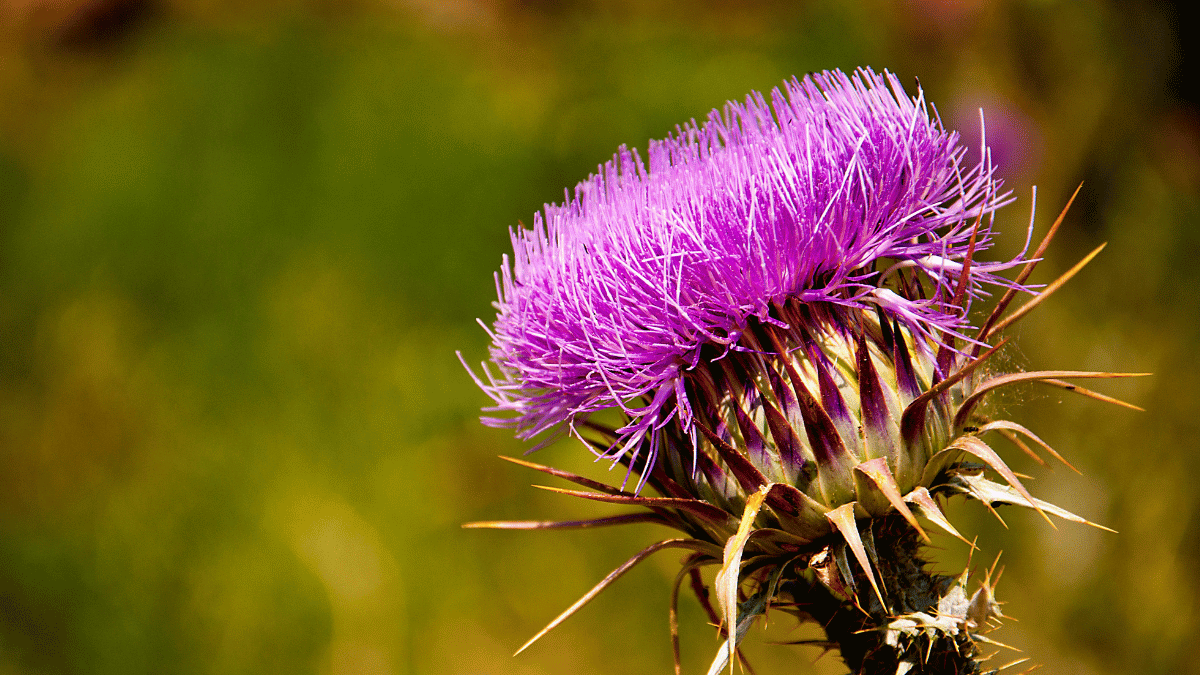
For many years, the purple-flowering milk thistle has been used as a natural remedy for diabetes. This popularity is well-deserved. Those with Type 2 diabetes may find it helpful in managing their blood sugar levels so far, provided it does not lead to weight gain or liver issues. Milk thistle is an antioxidant and helps reduce inflammation, among its many positive health benefits. However, further research is needed to understand its effects on humans completely. You should see a medical professional before using any new supplement or herbal remedy. When making suggestions, they may consider your health history, current symptoms, and potential medication interactions.
Cinnamon

Research suggests that cinnamon may help people with diabetes control their condition by increasing insulin sensitivity and decreasing blood sugar levels. Insulin resistance is an antecedent to type 2 diabetes; insulin-like chemicals may lessen its severity. Most cinnamon supplements have no health risks. It is safe to use in modest quantities for brief durations; however, larger doses may induce gastrointestinal problems or allergic responses. Dietary supplement users with a history of liver disease should proceed with care and seek medical advice before taking any new supplements. An all-encompassing strategy for diabetes management should include dietary changes, physical activity, monitoring blood sugar levels, and, if required, insulin injections or medication.
Gymnema Sylvestre

Research has shown that the traditional herb gymnema may regulate blood sugar by enhancing insulin secretion. Researchers in 2001 discovered that after 90 days of using gymnema leaf extract, those with hyperglycemia saw a decrease in their blood sugar levels. When used in conjunction with other diabetic medications or insulin, it may enhance diabetes management. However, it cannot replace insulin on its own. While gymnema is often safe for adults, anybody using blood sugar drugs, pregnant, or nursing should talk to their doctor before using this product. Get advice from an expert since everyone’s reaction is different.
Aloe Vera

The famous herb aloe vera might help people with diabetes manage their condition. Two possible adverse effects include lowering of weight and fasting blood glucose levels. Aloe vera’s low toxicity and high tolerance make it a good substitute if you have trouble following your prescription schedule. Though animal research indicates promising outcomes, human tests on aloe vera’s capacity to reduce haemoglobin A1c levels have produced contradicting findings. Although it won’t treat diabetes alone, Aloe vera might enhance other treatments. See your doctor before beginning any new supplement program.
Ginger
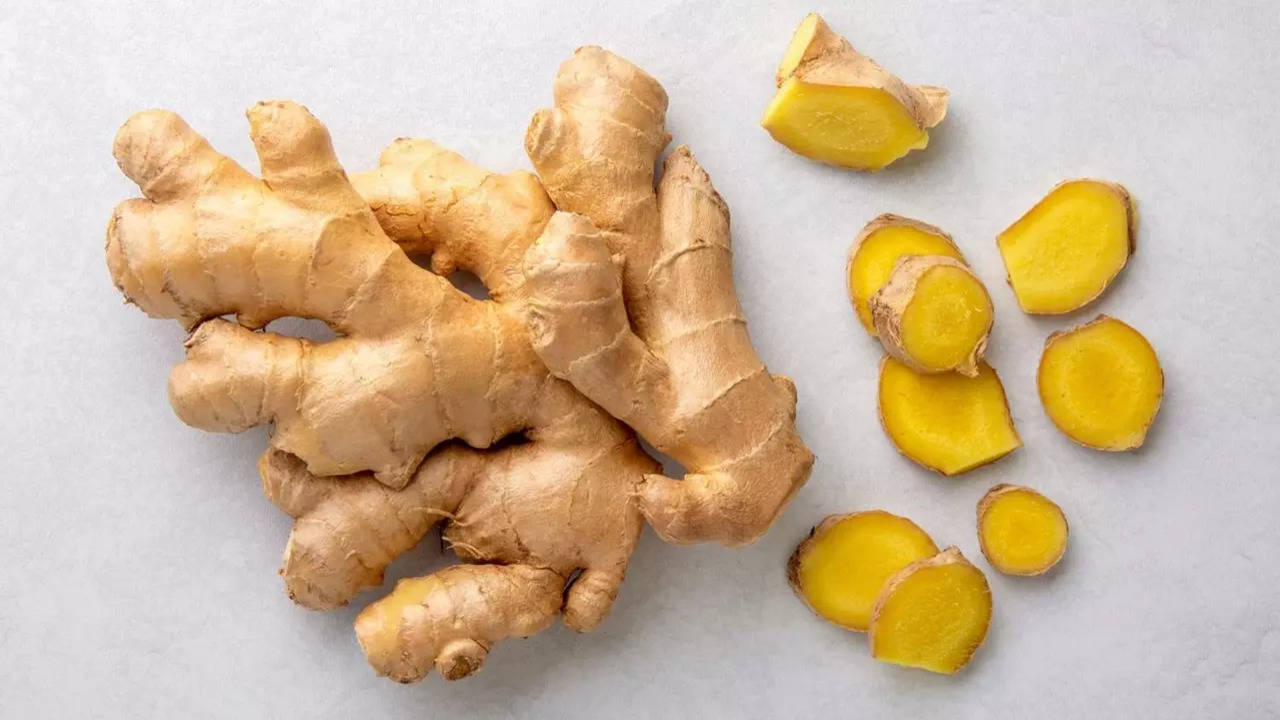
Guggul is a resin with a long history of use in Ayurvedic medicine. The plants that produce it are in India, Bangladesh, and Pakistan. When taken regularly, it lowers cholesterol and raises HDL levels in the blood, both of which help with diabetes control and prevention. In addition to helping with acne, eczema, and psoriasis, guggul’s anti-inflammatory characteristics have made it an effective treatment for other skin problems. Using guggul-based lotions to reduce inflammation and skin irritation has shown encouraging results. However, further study is required as there is a shortage of clinical trials that back up these advantages. Get your doctor’s OK before you start taking any new supplements.
Neem

The plant neem, scientifically known as Azadirachta indica, may help treat diabetes. It may improve glucose management by increasing insulin sensitivity, which in turn helps manage blood sugar levels. Research on the benefits of neem leaf powder on male diabetics who do not rely on insulin has shown promising results. Drinking neem sharbat regularly or chewing on fresh neem leaves (bitter) are two ways to utilise neem. Keep an eye on your blood glucose levels and talk to your doctor before adding neem to your regimen; however, everyone reacts differently.
Tulsi
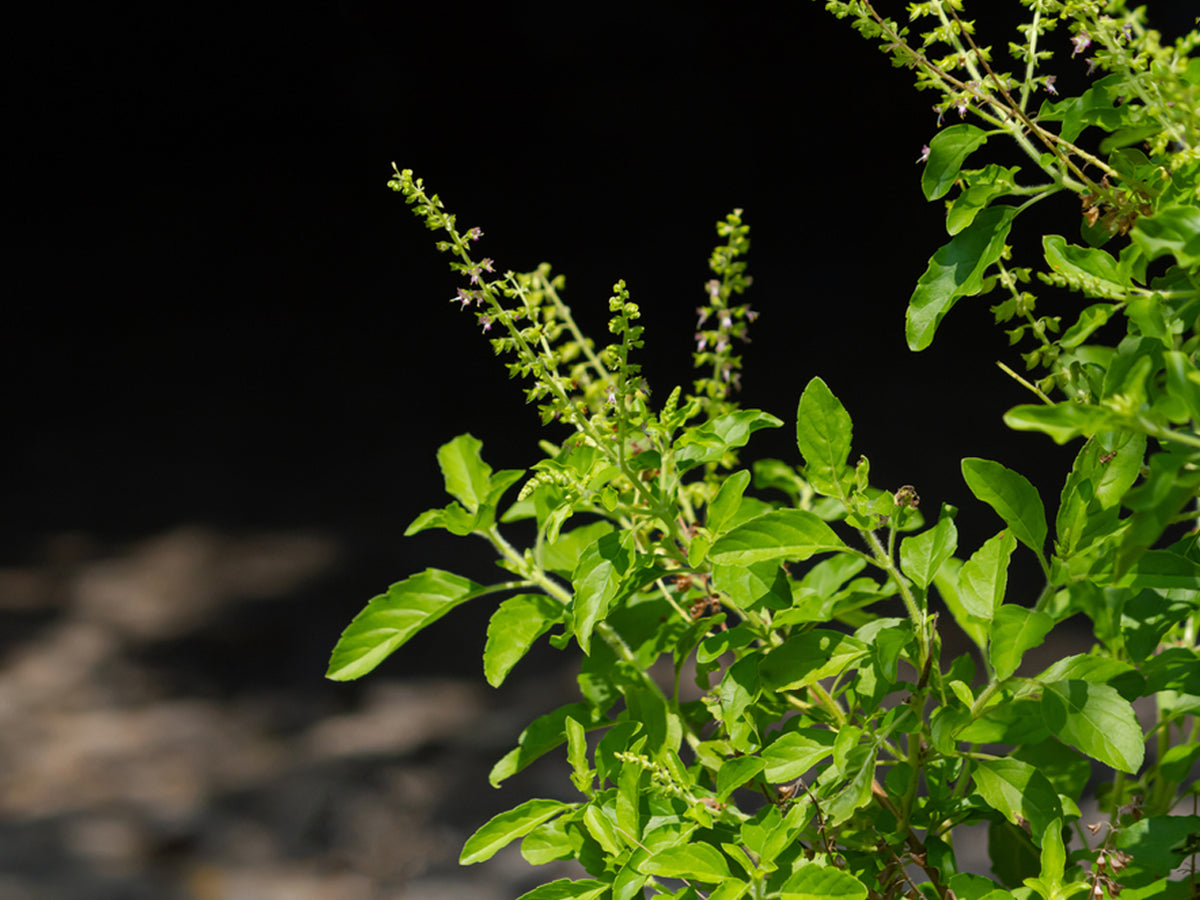
Tulsi, sometimes called holy basil, may help with diabetes control. Its ability to reduce blood sugar levels and forestall problems is known as its hypoglycemic effect. You may make tulsi tea by steeping the leaves in hot water or chewing them daily. Furthermore, it helps the body secrete and use insulin, which is particularly useful when fighting stress, which is a leading cause of diabetes. However, before adding tulsi to your regimen, you should talk to your doctor.
Giloy

The climbing shrub giloy has potential as an Ayurvedic remedy for diabetes. One must lower blood glucose levels and increase insulin production to achieve hypoglycemia. Because of the high fibre content, which slows the digestion and absorption of carbs, it aids with blood sugar regulation. Although there is little evidence of its effectiveness, you can include giloy in your diet. However, consistent use is critical to avoiding any adverse side effects. You should see your physician before beginning a new supplement program.
Conclusion
Diabetes, its complications, and overall health may all be better managed with the use of Ayurvedic herbs. Because herbs might interact with other medications or exacerbate existing conditions, it is essential to use caution. Before seeing a medical professional, anybody considering adding more herbs to their current treatment plan should research. Traditional healing practices and an appreciation for nature’s healing properties may help people lead healthier lives, including better diabetes control. As a result, you may experience an even more remarkable surge of vitality and harmony. No one method will be effective in the long run when it comes to managing diabetes. Working with healthcare providers and trying new things is crucial if you want your health goals and live a whole life. Discover how Ayurveda uses natural herbs like Fenugreek Seeds, Turmeric, and Bitter Melon to manage diabetes effectively.

